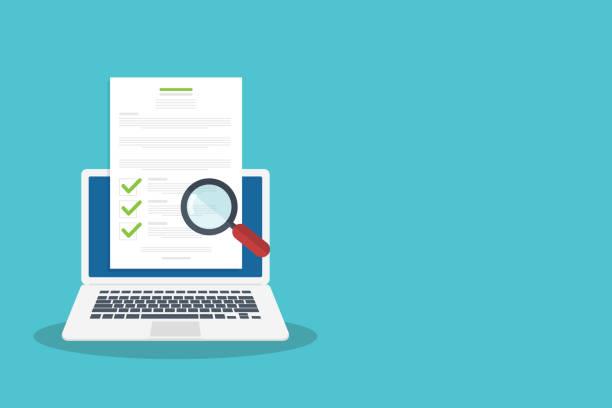
31-Oct-2022
Wordpress proposal to improve security and performance of plugins
If you’re a WordPress user, then you know that one of the platform’s most appealing features is its plugin system. This system allows you to easily extend the functionality of your site without having to mess with code.
- Unfortunately, this same feature can also be WordPress’s downfall. Because anyone can create a plugin and make it available to the public, there’s no guarantee that it will be well- coded or even secure.
- This has led to several high- profile security breaches in recent years. In an effort to improve the security and performance of plugins, WordPress has proposed a new standard for plugin development. In this blog post, we’ll take a look at what this proposal entails and what it could mean for the future of WordPress plugin development.
Problem with WordPress Plugins
- One of the most common complaints about WordPress is that it’s slow and insecure. A big part of the problem is the vast number of plugins available for the platform. While plugins are one of WordPress’s biggest selling points, they can also be a big liability.
- Out of every five WordPress sites are hacked. That’s because most WordPress security vulnerabilities are caused by poorly coded plugins.
- In addition to being a security risk, these plugins can also drag down your site’s performance. Too many plugins can make your site slow and clunky, which frustrates visitors and hurts your search engine ranking.
- The good news is that there are some things you can do to mitigate these risks. First, only install plugins from reputable sources like the WordPress plugin repository or well-known premium plugin developers. Second, keep your plugins up to date so you’re always getting the latest security fixes. And finally, delete any unused plugins to clean up your codebase and improve performance.
Our Proposal
We have put together a proposal to improve the security and performance of WordPress plugins. This proposal includes changes to how plugins are developed, tested and deployed. We believe these changes will make WordPress more secure and reliable for everyone.
- The first change we propose is to move plugin development away from the current SVN repository and into a Git repository. This would allow for better collaboration between developers and would also allow for more flexible development workflows. Additionally, it would allow for easier automated testing of plugins before they are deployed to production sites.
- The second change we propose is to improve the way plugin security is handled. Currently, there is no centralized place where information about plugin vulnerabilities is collected and disseminated.
- We believe that creating a central database of plugin vulnerabilities would help to address this issue. Additionally, we believe that all plugins should be required to use signed commits, which would help to prevent malicious code from being introduced into plugins.
- The third change we propose is to improve the performance of WordPress sites by making use of caching and other optimization techniques.
- Caching can dramatically improve the performance of WordPress sites, but it is often not used due to the difficulty of setting it up correctly. We believe that making caching easier to set up and use would greatly improve the performance of WordPress sites.
- Additionally, we believe that optimizing code and using faster hosting providers can also help to improve WordPress site performance.
How this will Improve Security & Performance
There are two primary ways that this proposal would improve the security and performance of WordPress plugins:
1. By making it easier for plugin developers to code securely and efficiently, and
2. By providing a more secure and efficient platform for plugin users.
Let's take a closer look at each of these benefits:
1. Improved Security for Plugin Developers
The proposed changes would make it easier for plugin developers to code securely, by streamlining the process of validating user input and output, and by providing clear guidelines on how to properly sanitize data. In addition, the proposed changes would improve the overall security of the WordPress ecosystem by making it more difficult for malicious actors to exploit vulnerabilities in plugins.
2. Improved Performance for Plugin Users
The proposed changes would also improve the performance of WordPress plugins, by making it easier for plugin developers to optimize their code for performance. In addition, the proposed changes would provide a more stable platform for plugin users, by reducing the likelihood of compatibility issues between plugins andWordPress itself.
Conclusion
There are a number of ways to improve the security and performance of WordPress plugins, and we believe that our proposal is the best way to achieve this. By requiring developers to use signed releases and providing a central repository for plugins, we can ensure that only approved plugins are running on WordPress websites. This will help to reduce the risk of vulnerabilities and improve the overall performance of WordPress sites.

SEO and Content Writer
I am Drishan vig. I used to write blogs, articles, and stories in a way that entices the audience. I assure you that consistency, style, and tone must be met while writing the content. Working with the clients like bfc, varthana, ITC hotels, indusind, mumpa, mollydolly etc. has made me realized that writing content is not enough but doing seo is the first thing for it.
Join Our Newsletter
Subscribe to our newsletter to receive emails about new views posts, releases and updates.
Copyright 2010 - 2026 MindStick Software Pvt. Ltd. All Rights Reserved Privacy Policy | Terms & Conditions | Cookie Policy